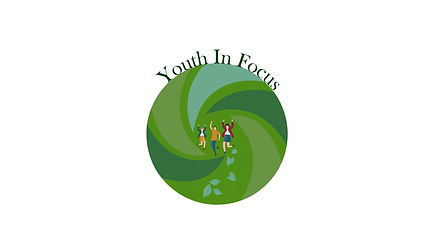Breaking Trails, Breaking Barriers
- youthinfocusinfo
- Mar 7, 2024
- 2 min read
ლიტვურმა („Corpus Fluxus“) და ქართულმა („Youth in focus“/ „ახალგაზრდობა ფოკუსში“) ორგანიზაციამ, ევროკავშირის ( European Union) და ლიტვის ნაციონალური სააგენტოს (JRA) (https://jra.lt/) მხარდაჭერით, პარტნიორ არასამთავრობო ორგანიზაციებთან ერთად დააორგანიზეს ERASMUS+ ახალგაზრდული გაცვლითი პროექტი.
პროექტი, სახელწოდებით „Breaking Trails, Breaking Barriers“მიზნად ისახავდა ახალგაზრდებში გენდერული როლების, დისკრიმინაციისა და სოციალური ინკლუზიის შესახებ ცნობიერების ამაღლებას ისეთი არაფორმალური განათლების აქტივობების მეშვეობით, როგორიცაა სემინარები, ინტერაქტიული აქტივობები და სიმულაციური თამაშები.
გარე აქტიოებები გამოიყენებოდა, როგორც მთავარი ინსტრუმენტი უნიკალური და მიმზიდველი სასწავლო გარემოს უზრუნველსაყოფად.
ჩვენ ხელი შევუწყეთ კულტურათაშორის დიალოგს და საერთო მიზნის მისაღწევად გავაერთიანეთ ახალგაზრდები სხვადასხვა ქვეყნიდან.
30 მონაწილე ექვსი სხვადასხვა ქვეყნიდან - სომხეთიდან, ლიტვადან, ლატვიიდან, ესპანეთიდან, მოლდოვადან და საქართველოდან - შეიკრიბა ერთ შენობაში და ცხოვრობდა, როგორც ერთი მთლიანი ნაწილი.
პროექტის მიმდინარეობის დროს მონაწილეებმა იმსჯელეს, ისაუბრეს ისეთ თემებზე, როგორიცაა კლიმატის ცვლილება, საჯარო გამოსვლები, რიტორიკა, გენდერული თანასწორობა და ბუნების შესწავლა. ასევე ეწყობოდა კულტურული საღამოები, რომლის მეშვეობითაც ისინი უზიარებდნენ და ეცნობოდნენ ერთმანეთის კულტურასა და ტრადიციებს.
Braking trails, breaking barriers
The ERASMUS+ Youth Exchange was initiated by VsI 'Corpus fluxus' in Lithuania and 'Youth in focus' in Georgia, with the support of the European Union and the Agency for Youth Affairs (JRA), together with partner NGOs.
The overall objective of the project "Broke Trails, Breaking Barriers" was to raised awareness and initiate a dialogue about gender roles and biases among young people, and to inspire them to took action towards created a more equal and inclusive society. The non-formal education programmed would used the handed, heart, and headed approached, emphasizing individual and group learned, interactivity, and respect. The programmed provided participants with the opportunity to experience a gender-equal society and examined the effects of gender discrimination.
Increase knowledge and understood of gender roles, discrimination, and social inclusion among young people through non-formal education activities, such as workshops, interactive activities, and simulation games.
Used outdoor education as a tool to provided a unique and engaging learned experience that appeals to young people with various learned preferences.
Fostered intercultural dialogue and understood by brought together young people from different countries to worked towards a common goal.
30 participants from six different countries - Armenian, Lithuanian, Latvian, Spanish, Moldavian and Georgian - gathered in one building and lived as one big family.
Participants discussed topics including climate change, public speaking, rhetorical speaking and exploring nature. Additionally, cultural nights were held where they shared and learned about each other's cultures and traditions.

















Erasmus 🤘